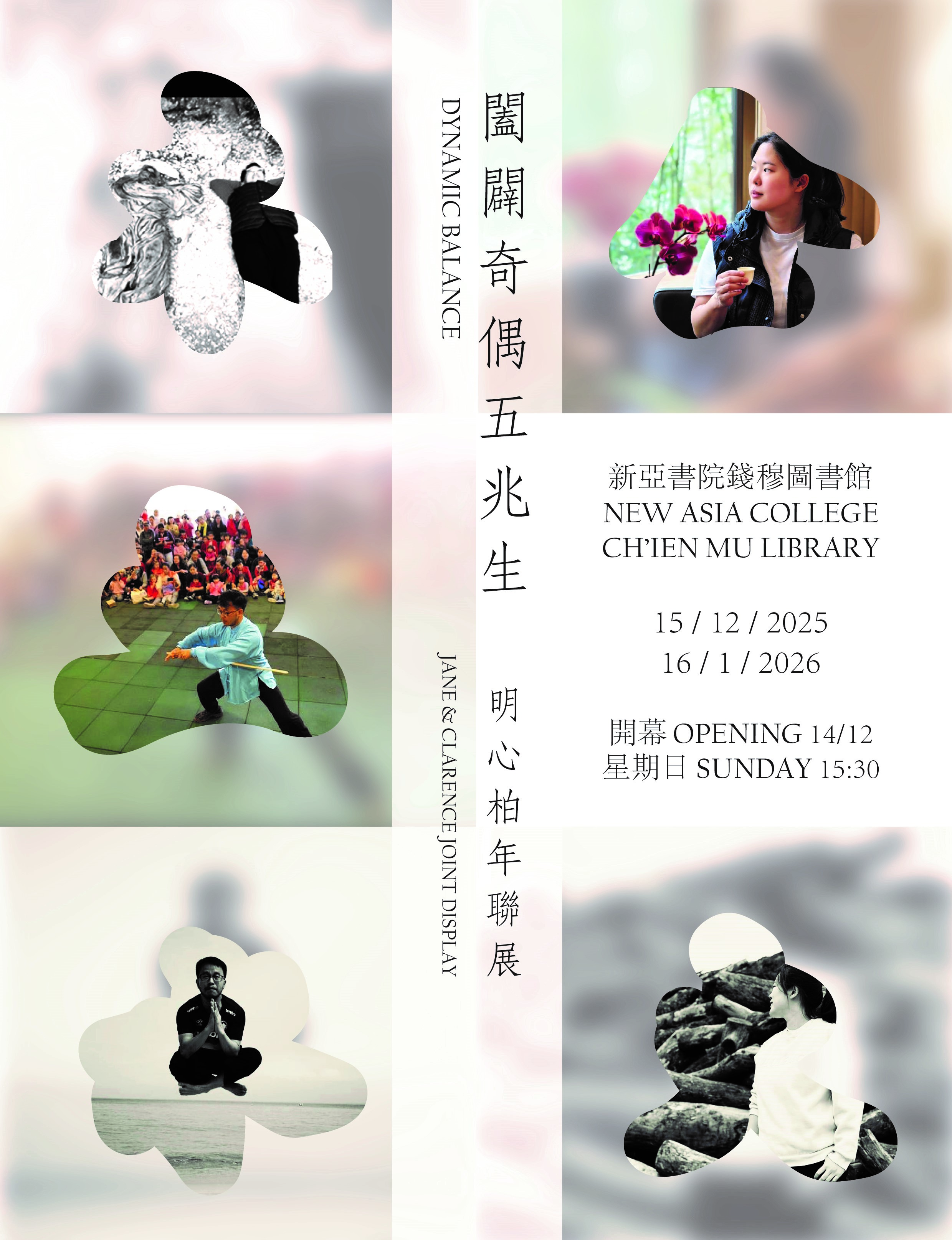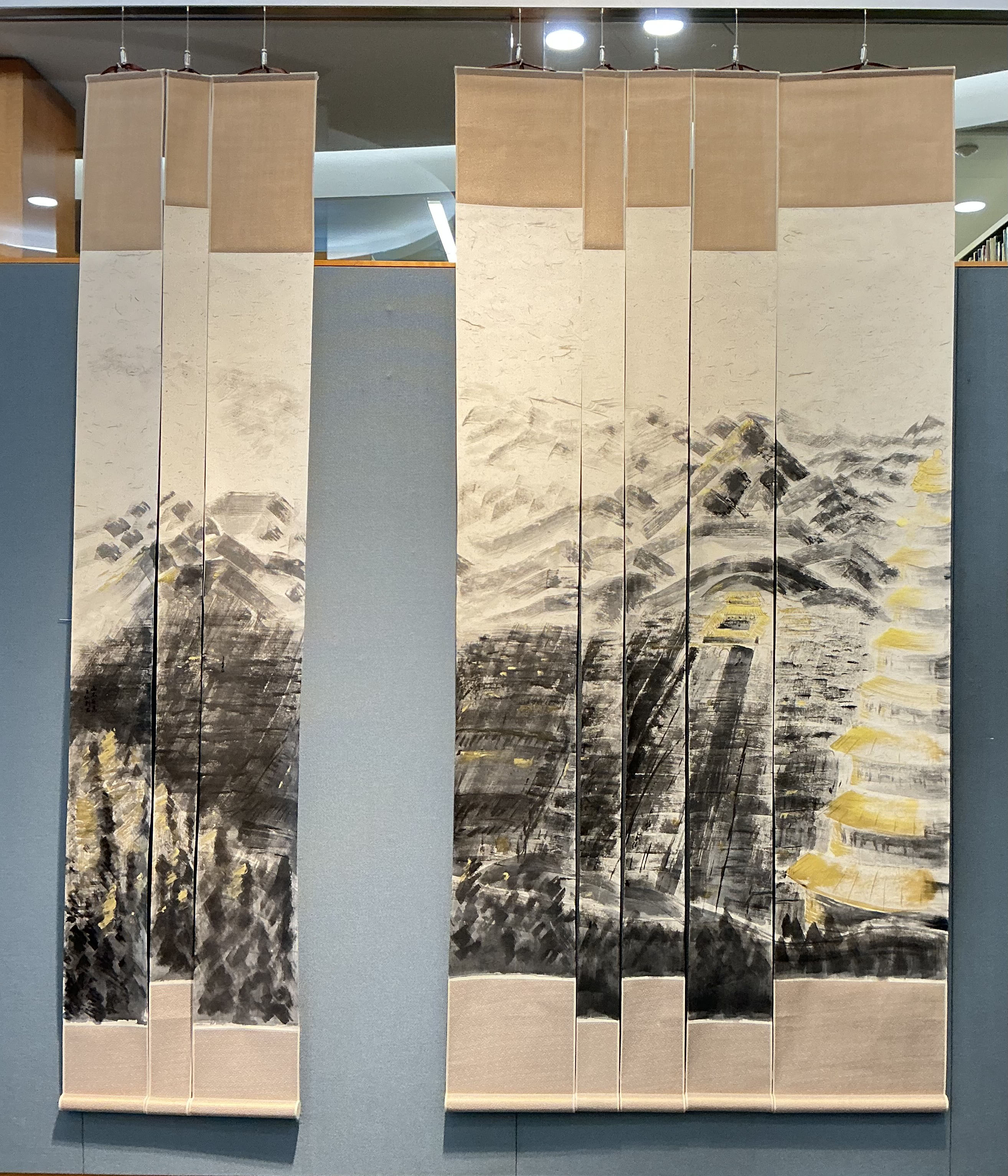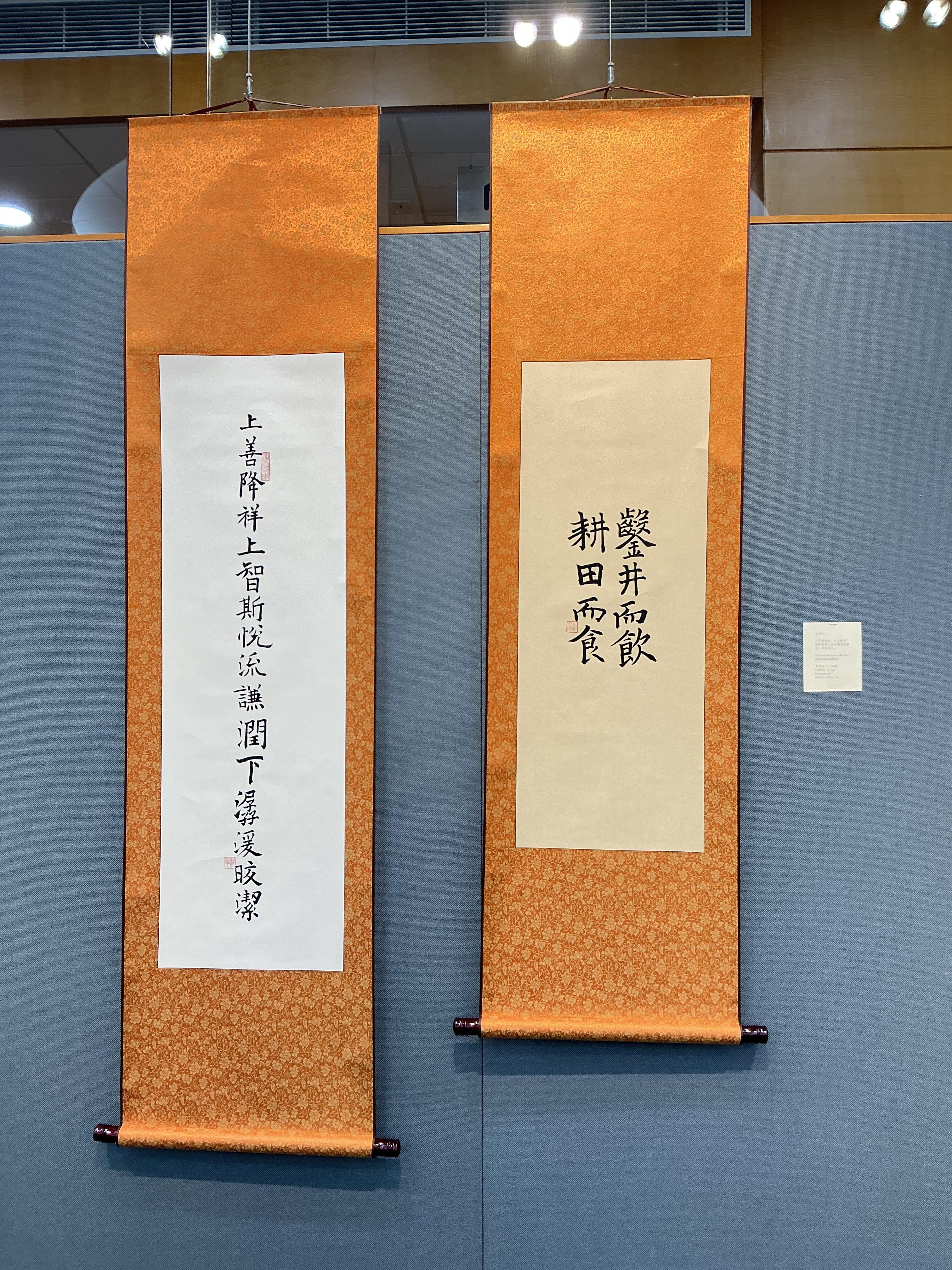
épochè 存而不論 (2017)

Reading Report 閱讀報告 (2018)






Current Event 今期活動
Title: ‘Dynamic Balance’: The Jane & Clarence Joint Display
名稱:《闔闢奇偶五兆生》:明心柏年聯展
Artists: Wong Pak Nin Clarence and Li Hue Ling Jane
作者:黃柏年及李曉伶
Date: 15 - 24 December 2025 (Extended to 16 January 2026)
日期:2025年12月15日至24日﹙展期延長至2026年1月16日﹚
Venue: Exhibition Gallery on M/F, New Asia College Ch'ien Mu Library
地點:新亞書院錢穆圖書館閣樓展覽廊
Statement:
The Energy of Heaven (Qian) and Earth (Kun) converges;
Even and Odd embrace.
Clarence and Jane met within the Master of Art class:
Clarence pursues mountain trails,
Jane contemplates topography’s hidden currents.
One discovers the universe through Taiji’s moves;
The other carves ancient wisdom of Hetu and Luoshu's celestial calculus.
Calligraphy learned side by side,
Exhibitions wandered step by step,
Now they co-create this final testament.
In their Master’s final year,
Five sets of artworks unveil their meditation:
Heaven, Earth, and Humanity.
In mutual inspiration,
Qian tumbles; Kun rests.
Heaven manifests; Earth forms.
Transforming, metamorphosing—
Five Elements awaken.
Grandly diverging, miraculously converging;
Aligning people, time, and space
In perfect equilibrium.
About the Artists:
Clarence Wong, named “a Tree”, enjoys nature, is immersed in Tai Chi, absorbs himself in reading, and loves family & friends. In arts, he follows the teaching of Tian Xing Lam, Martin Schmandt, Kelvin Ma, and Cheng Mui Liu, not in expectation of mounting upon a great wind, but promise to devote to life-long learning, to preserve the originality and simplicity in the pursuit of the beauty learning from the teachers’ kindness, benevolence, joy and light.
Jane M Li, has a deep appreciation for gemstones and seal stones, and is dedicated to the study of Feng Shui. She is passionately devoted to Chinese calligraphy and treasures her family and close friends above all.
Inspired by her grandfather, Mr. Kwan Chiu, and his legacy in the jewellery business, she now dedicates herself to traditional Chinese culture under masters including Sherman Wong, Tang Cheong Shing, and Leung Wai Yin. She believes in refining artistry to its purest form before embracing simplicity; valuing depth over recognition, and letting achievements unfold naturally.
簡介:
乾與坤相合,奇與偶會合
柏年和明心在藝術系的碩士課相識。
柏年喜歡跑入山中,
明心擅長觀山閱勢;
一個把宇宙萬理打入太極拳中體悟,另一個卻用手中刻石去理解河圖洛書。
一起學書法,
一起看展覽,
和一起辦展覽。
在最後一年的碩士課程中,
如何一起
及各自透過自身
對天地人的感思,
來呈現五組的藝術展品!
展覽的動態平衡,
策展思維基礎上,
更有相信彼此這年生命成長的開拓,著緊學習,
互相啟發。
乾動坤靜,
天象地成,
變變化,明變化,
而生五行變化矣。
大開大合,精開妙合,
天開地合,人時空無咎。
關於藝術家:
黃柏年,號「一棵樹」,喜大自然,投入太極,醉心閱讀,更愛家人朋友。藝術上,師從林天行,馬召其,Martin Schmandt,廖井梅,不期摶扶搖,而許諾終生用功,抱樸從美之道,求慈求仁求樂求光。
李明心,字曉伶,喜愛寶石石頭,投入堪輿風水,醉心書法,更愛家人知己。前半生在珠寶上,傳承關釗先生家族薰陶。後半生在中國文化上,師從黃俊元,鄧昌成,梁慧妍。寧可無人問津,但求藝術到精闢才轉樸實。自然而行,成就隨天。
Poster:
海報:

Art Works:
作品:
Li Hue Ling Jane 李曉伶

Wong Pak Nin Clarence 黃柏年

More photos are available in New Asia College Library Exhibition Archive.
讀者可於新亞書院圖書館展覽庫瀏覽更多展覽相片。